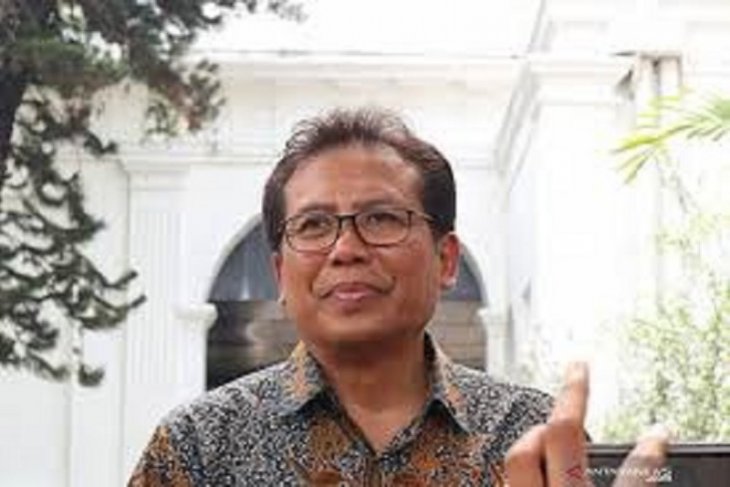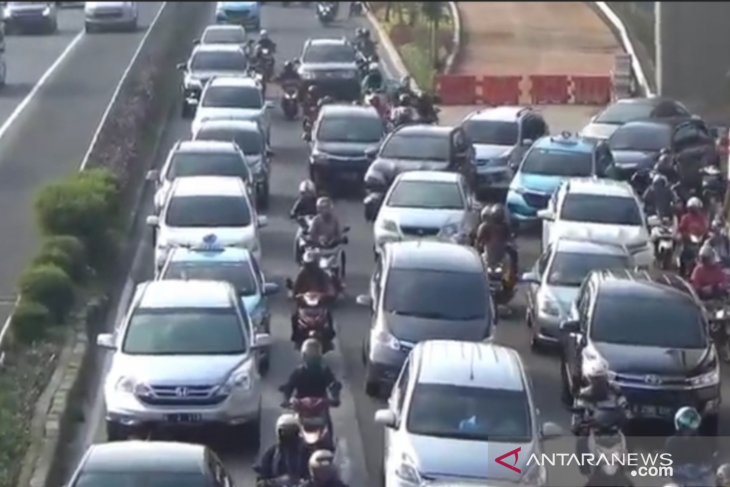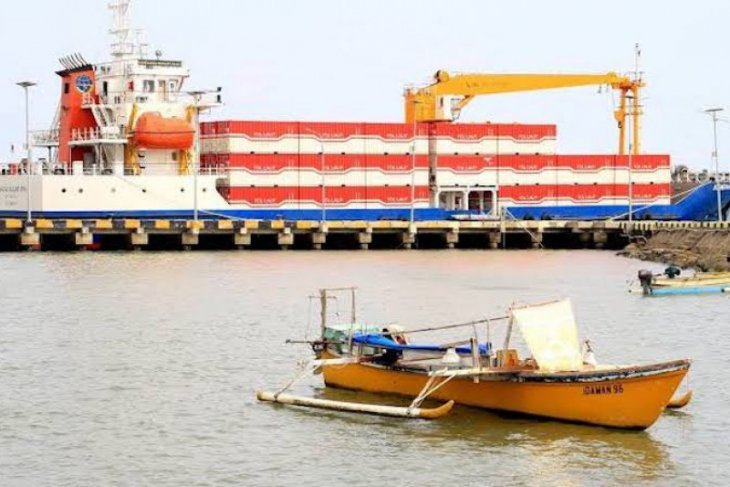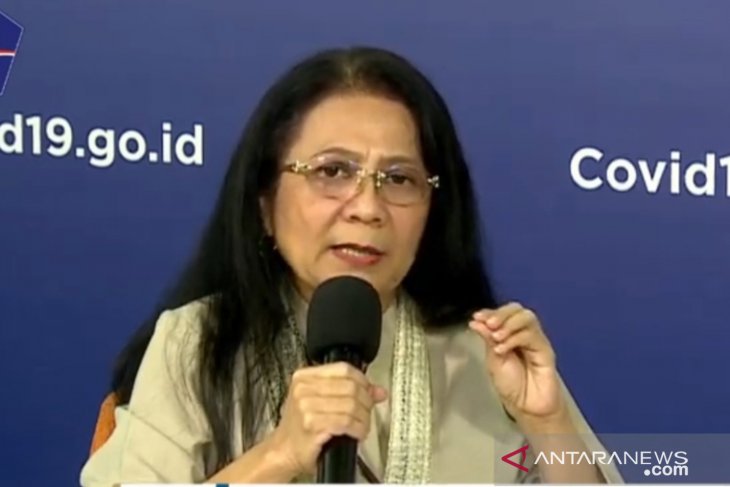Live Streaming
Program Highlight
Company Profile
June
Spokesman: President Stressed that Social Assistance Targets be Met
Written by Ani Hasanah
Presidential Spokesperson, Fadjroel Rachman. (ANTARA/Bayu Prasetyo)
Presidential Spokesperson Fadjroel Rachman stated that President Joko Widodo has always emphasized to his staff that they must work to ensure that the distribution of social assistance continues to meet earlier targets, especially during the COVID-19 pandemic.
"In every Limited Meeting, President Joko Widodo always stressed that the distribution of social assistance is right on target," he said, in a statement received here on Monday.
The Spokesman's statement was made in response to survey results released by the Indonesian Political Indicator, which showed 60.3 percent of respondents believed that the distribution of social assistance was not on target.
Aside from the President's emphasis, he continued, Coordinating Minister for Human Development and Culture Muhadjir Effendy and Social Minister Juliari Batubara have worked in the field, in order to ensure that the social assistance was distributed to targeted groups.
"The Coordinating Minister of Human Development and Culture, and the Social Minister, always come down to the field to solve data problems and offer flexibility to neighborhood leaders, villages and regions to solve problems in the field," he explained.
The ministers' activities in the field also serve as part of the improvement of the Integrated Social Welfare Data (DTKS).
In several Limited Meetings discussing social assistance, President Joko Widodo has often had his staff evaluate the distribution of social assistance, in order to ensure that targets are being met.
Ministers have also submitted programs and policies to support the distribution of assistance, however, there had been information and news that circulated, reporting that social aid distribution was not on target. (ANTARA)
June
Heavy Vehicular Movement again Observed at Jakarta's Inner Ring Road
Written by Ani Hasanah
Jakarta's roads again packed with vehicles. (ANTARA/Andi Firdaus)
Vehicles thronged several toll road sections in eastern parts of Jakarta and its main roads, Monday, as offices gradually reopened after Governor Anies Baswedan's decision to put in place a transitional period since June 5.
To manage the congestion issue, the police conducted the counterflow of vehicles on Jakarta's inner ring road of KM00+200- KM 08+100 section at 6 a.m. local time, spokesperson of state-owned toll road operator PT Jasa Marga Irra Susiyanti remarked.
The influx of vehicles, mostly private cars, was observed from the Cawang toll road entrance gate despite the authorities' decision to reopen offices at 50-percent capacity amid the ongoing COVID-19 pandemic.
Drivers and motorists packed the MT Haryono Road in Cawang en route to the areas of Central and South Jakarta.
"Scores of vehicles made a dash for the city's road sections," Adi Nurgaha, a 41-year-old employee of a privately owned company in South Jakarta, stated.
Nurgaha, who drove his car to reach his office, recalled having spotted congestion on road sections, such as Panglima Polim, Gatot Subroto, and Dewi Sartika.
In spite of the COVID-19 curve flattening in several of the capital city's administrative areas, the Jakarta provincial government continues to enforce large-scale social restriction and distancing measures until the end of June 2020.
However, the Jakarta provincial government has decided on a transitional period, starting from June 5, during which business activities can gradually resume, albeit strictly following the COVID-19 protocols.
During the transitional period, the Jakarta provincial government has appealed to the city's residents to wear face masks while venturing outdoors, and those found flouting the rule will be imposed a fine of Rp250 thousand.
The provincial government had earlier confirmed to have distributed some 20 million free masks to its residents.
It also cautioned its residents to temporarily keep children, pregnant women, and elderly away from events that draw a horde of people during the transitional period toward a new normal that will come into effect since June 5, 2020.
Jakarta Governor Anies Baswedan emphasized that people, with comorbidities, were also banned from partaking in events involving congregation of people since they fell in the vulnerable group amid the ongoing global pandemic of the novel coronavirus disease (COVID-19).
To this end, Jakarta's residents, who fall sick, are urged to stay at home, and all should adhere to the healthcare protocols during the transitional period, he remarked.
Ahead of the transitional period, Jakarta's firefighters sprayed disinfectant at 31 traditional markets in the capital city's eastern parts to stem the transmission of COVID-19. (ANTARA)
June
New Normal, Sea Toll Uses Logistic Communication System
Written by Ani Hasanah A ship operates in the sea highway program that will bring logistics to eastern Indonesia. Antara / Ministry of Transportation documentation
A ship operates in the sea highway program that will bring logistics to eastern Indonesia. Antara / Ministry of Transportation documentation
The Directorate General of Sea Transportation at the Ministry of Transportation has ensured that the logistics delivery program through the sea highway program must continue to run in the new normal period, by applying a strategies of using a logistic communication system (LCS).
"The wheels of the economy must move and the company can continue to run its business, hence the government must be present to facilitate this," Director of Traffic and Sea Transportation Capt. Wisnu Handoko said in a statement in Jakarta on Sunday.
In addition, the cargo data with LCS will be tightened so as to eliminate SOP deviations from the operation of the sea toll program.
"Therefore, the implementation of the SOP on shipping goods will be tightened by registering in accordance with the electronic identity card (e-KTP) and tax identification numbers (NPWP)," he said.
LCS developed by PT Telekomunikasi Indonesia (Telkom) will continue to be updated in an effort to assist and facilitate the public in accessing ship schedule information, vessel tracking position, container availability, shipping orders, manifests and shipping costs, cargo shipping statistics, up to the selling price of goods basic and important needs.
Furthermore, he explained in the cargo and ship space information, his party would facilitate the business process of ordering, shipping containers, transparency in standardizing logistics costs and disparity in prices of essential and important goods.
"In the future, it will not only eliminate physical contact, but can also stimulate healthy competition because businesses will monitor each other's prices. Businesses must upload their respective service fees," he explained.
The Ministry of Transportation hopes that the sea toll in the new normal can be utilized by businesses in staple goods between islands to further increase the volume of goods delivery to meet regional needs.
"We laud several regional heads who have proven their commitment to send regional production, such as Morotai, Bitung, Tahuna, and Saumlaki" Wisnu said.
During the COVID-19 pandemic, special cargo ships and sea transport vessels were still permitted to operate by implementing the health protocols for handling COVID-19. (ANTARA)
June
COVID-19 Pandemic Affects Children's Immunization Program: Ministry
Written by Ani Hasanah
Director of Surveillance and Health Quarantine of the Health Ministry R. Vensya Sitohang held a press conference with the Task Force for Acceleration of COVID-19 Handling in Jakarta on Monday (June 8, 2020). ANTARA/Katriana/sh
Indonesia's Health Ministry highlighted the significant impact of the COVID-19 pandemic on the immunization program for infants and children nationwide.
"The COVID-19 pandemic has a significant impact on the implementation of the immunization program," the ministry's Director of Surveillance and Health Quarantine, R. Vensya Sitohang, stated during a press conference with the Task Force for Acceleration of COVID-19 Handling in Jakarta on Monday.
Sitohang remarked that almost 83.9 percent of health services, particularly the vaccination program, were halted owing to the pandemic.
"It means health services for immunization could not be conducted. We know the impact of suspending vaccination for children," she stated, adding that health services were reportedly suspended in nearly all districts.
The ministry recorded that the trend of basic vaccination for children in April had declined from that in April 2019.
"There was no reported impact yet in January and February. However, a significant decline of almost 4.7 percent was recorded in April, as compared to the coverage in 2019," she pointed out.
Despite the national immunization coverage having met its target, the government will require to accrue more comprehensive data on children that had yet to be vaccinated in each province, district/city, sub-district, and village.
"There is a need to implement a strategy wherein Public Health Services (Puskesmas) know all children by name, address, and vaccination that they require," Sitohang added. (ANTARA)


